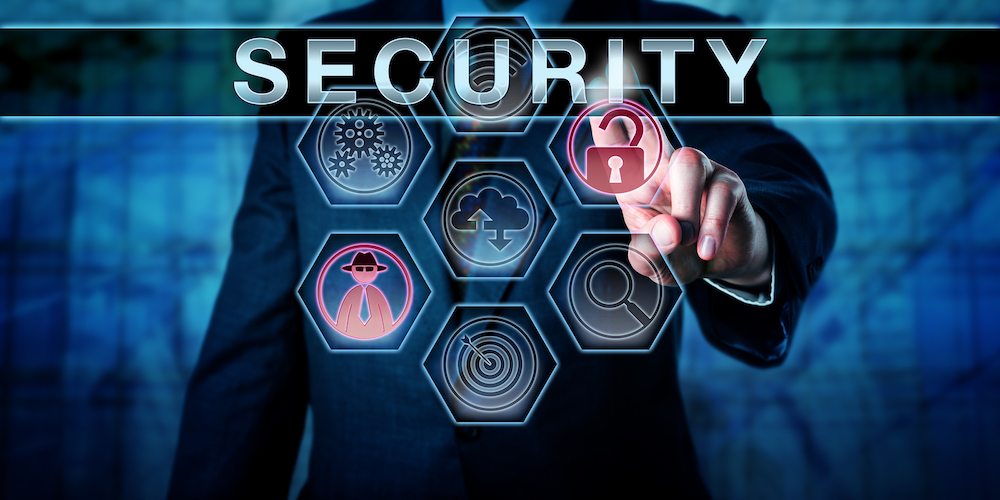Tech
The Importance Of Security
Published
5 years agoon
By
Luqman Swati
Investing in security is one of the best things you can do for your company’s growth. It allows you to protect your business from cyber-attacks and other threats.
Administrative
Keeping a close eye on Next-generation firewall is vital, mainly if it involves sensitive data such as employee or vendor records. However, keeping track of these types of information in a fluid environment can be difficult and requires a high level of protection.
Fortunately, you can do a few things to prevent leaks and protect your sensitive data. First, you need to identify which information is most important. This is done by developing a logical security plan. A logical security plan describes how you will use system privileges and what procedures you will use for monitoring and maintaining passwords.
Next, you will need to assign a department security manager. The manager will be responsible for monitoring and approving access to the administrative systems in the office. The manager is also responsible for ensuring that the security policy is followed. This requires a lot of time and is best assigned to a professional with technical knowledge.
Having a clearer view of the administration systems in your organization can help you make more informed decisions and keep you from committing security mistakes. It can also help you identify trends that could lead to security threats.
Technical
Whether it’s network security or physical protection, it’s essential to understand what each entails. This will allow you to take the appropriate measures for your business.
Network security is often at the forefront of many companies’ efforts to secure their networks. As the internet grows in popularity, so does the need to protect sensitive data. You’ll need to implement a solid security plan to keep your information safe. It’s essential to be proactive in monitoring and patching your systems because hackers will try to exploit any flaw in the software or hardware.
Physical security is a must, especially in a natural disaster. In addition, having adequate safety measures in place can prevent the theft of valuable company assets. This includes properly using electronic gates, turnstiles, and other equipment.
The best security measures strike a balance between convenience and protection. For example, you should have a backup plan in place, but you should also be diligent in checking your employees’ credentials. Having a badge to prove your identity is a good start.
Physical
Investing in physical security is crucial for any organization. It protects assets, ensures safety, and helps keep people out of mission-critical areas. In addition, it helps safeguard reputation.
In today’s world, threats are both internal and external. Moreover, they are becoming increasingly complex. In many cases, the root of the problem is human behavior. If you are not careful, you could be unwittingly putting your employees at risk of physical harm.
The best physical security strategies include specialized hardware and software to protect assets and personnel. They also involve risk analysis to assess man-made and natural hazards. This can help you decide how to secure your assets.
For example, it is essential to consider whether you should use CCTV cameras or drones to monitor your facilities. These systems are becoming more connected to the internet. Using them in combination with facial recognition, you can be alerted when someone arrives.
In addition to CCTV cameras, a high fence can keep unauthorized visitors outside. So if you’re planning to move your office, make sure you plan for various preventative measures.
Cyber
Keeping data private and secure is one of the most critical factors regarding Cyber Security. People keep a lot of personal information on computers and internet-connected devices. The risk of identity theft and financial loss is a real concern for average consumers.
Businesses are also highly vulnerable to cybersecurity breaches. They can incur high costs and lose customer confidence. The damage can be severe, mainly if the breach is successful. The consequences include losing crucial data, damaged reputation and revenue, and increased costs.
Despite these dangers, most enterprises are still highly dependent on networks and computer systems. However, the cyber threat is growing more complex.
The most common cyber security threats are phishing schemes, malware, viruses, Trojan horses, and social engineering. Fortunately, many measures can be taken to protect your endpoint devices from malicious software.
Another security measure is to create a secure password and set up a firewall. There are even email and DNS filtering solutions that can protect your endpoint devices.
In addition, there are specific regulations that require businesses to implement measures to protect their customers’ privacy. For example, the California Consumer Privacy Act (CCPA) requires companies to encrypt customer data and protect user information. Failure to meet these mandates could result in hefty fines or lawsuits.
Cloud
Using cloud security is essential for ensuring the integrity of sensitive data. It also provides continuity in the event of a network outage.
It’s also necessary to have a comprehensive program that includes backups and plans for any network outages. Failure to implement this can result in permanent data loss. Hiring a data protection officer to provide expert knowledge on cybersecurity is also essential.
Several cloud service providers offer mechanisms to help protect customers’ infrastructure. These can include encryption, firewalls, change management protocols, and IAM. These tools are built with end-users in mind. They should help ensure that the desired level of security is achieved without slowing down business.
In addition, organizations should use a change management application that can detect unusual behavior and automatic trigger mitigation. This will allow them to react quickly to a cybersecurity threat.
Data-at-rest encryption is one way to preserve data confidentiality in the cloud. It renders the data unreadable to those who do not have a decryption key.
You may like

Is Fmovies Safe? What You Need to Know Before Streaming

Dominating the Digital Pitch: A Step-by-Step Guide to Creating Futbol Libre Content

Conquering CricHD: A Comprehensive Guide to Cricket Streaming

What You Need to Know About Police Brutality?

12 Sites to Watch Free Online TV Shows with Complete Episodes in 2024




